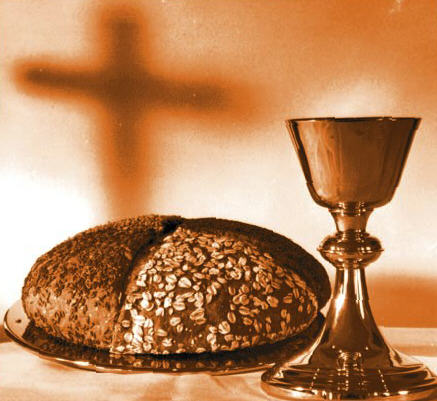|
CatholicismThe Sacraments We have now determined that Catholicism evolved from a mixture of Christianity, pagan beliefs, and leaders trying to lie their way into gaining political power. How do the sacraments fit into this? Where do they come from? First let’s define them. The majority of Christians have two sacraments: baptism and communion. Catholicism has five more. In Christianity, the sacraments are simply outward symbols of commitment, and are not necessary for salvation. In Catholicism, the sacraments must be done to obtain salvation. Here are the definitions: 1. Baptism – a priest or pastor pours water on the recipient’s head or does a full submersion of the recipient, Christians due to this to publicly show they have been saved, while Catholics due this to remove original sin and start the process of salvation, this is done only once in the recipient’s life, and is based on the fact that Jesus baptized people in the Bible 2. Confirmation – a priest puts Chrism (oil mixed with balsam and consecrated by the bishop) on the recipient’s head, this is the second sacrament to initiate salvation, also only done once in the recipient’s life
3. Eucharist (Communion) – a priest or pastor prays for bread and wine, and the recipient(s) eat and drink them, Catholics believe the bread and wine become the actual body and blood of Jesus, while Christians have mixed views on this, Catholics due this every Sunday, while Christians due this anywhere from once a year to every Sunday, this is based on the last supper when Jesus did this with his disciples 4. Penance and Reconciliation – done to remove sins of recipient after baptism and confirmation, this is done repeatedly throughout the recipient’s life, because salvation is a process in Catholicism, this consists of four elements: Contrition (sincere remorse), Confession to a priest, Absolution by the priest, Satisfaction or Penance 5. Anointing of the Sick – a priest anoints a stick with blessed oil, bestows grace and forgiveness to the recipient, done to those who are sick, old, or near death 6. Holy Orders – a bishop gives special grace and spiritual power to bishops, priests, or deacons to help with their leadership in the church, this is not required for salvation as not everyone can be a leader 7. Marriage – a priest establishes a permanent bond to spouses sealed by God, usually both parties must be Catholics and have been baptized for this to be valid, this is also not required for salvation First off, the five Catholic sacraments are not Biblical. They are not required for salvation and are not found anywhere in the Bible. Look at these verses: Romans 3:22-23 – and the righteousness of God [is] through the faith of Jesus Christ to all, and upon all those believing, -- for there is no difference, for all did sin, and are come short of the glory of God – (YLT) Romans 3:27-28 – Where this [is] boasting? it was excluded; by what law? of works? no, by a law of faith: therefore do we reckon a man to be declared righteous by faith, apart from works of law. (YLT) It is clear that only faith is required for salvation, which is a free gift from God. So where did the sacraments come from then? As we discussed in the history of Catholicism, things evolved over time to fit the will of the leaders and the people. Earlier, I mentioned that Mithraism was integrated into Catholicism, which contained sacraments. So it is most likely the five Catholic sacraments were spontaneously started by various churches and were adopted to give the church more credibility and power. However, the sacraments were made official by the Catholic church in the Council of Trent, which we will get to shortly.
Page 4 of 5 |
Subscribe to Bible Truth Newsletter:





